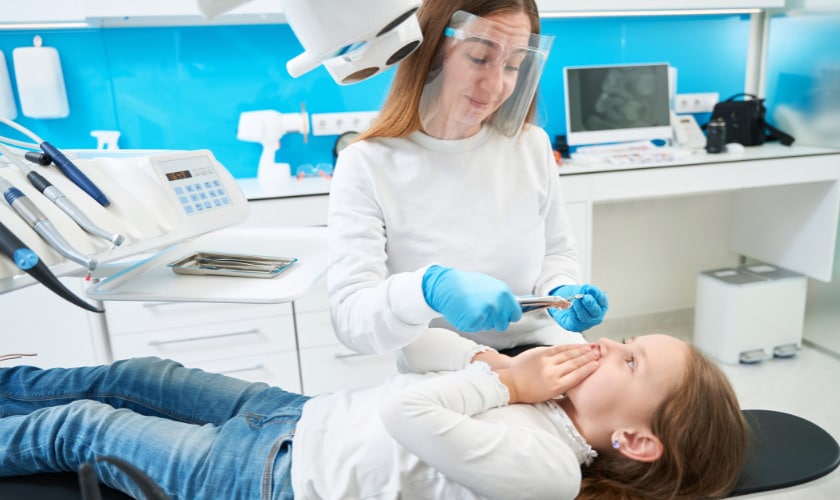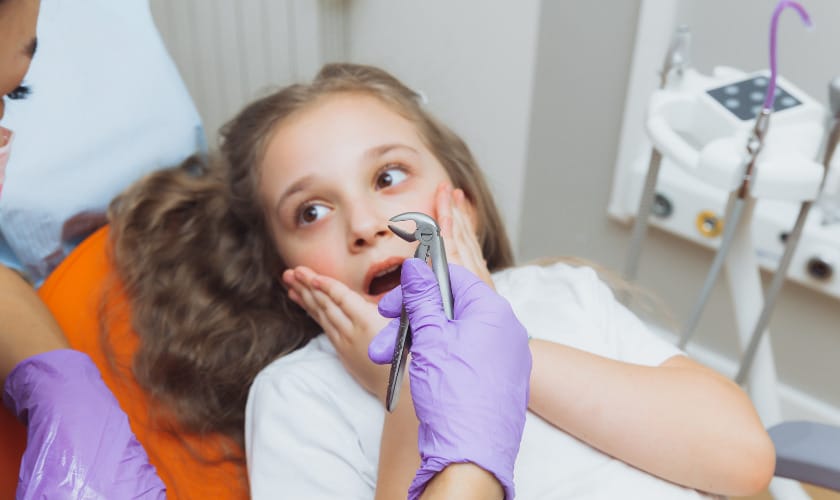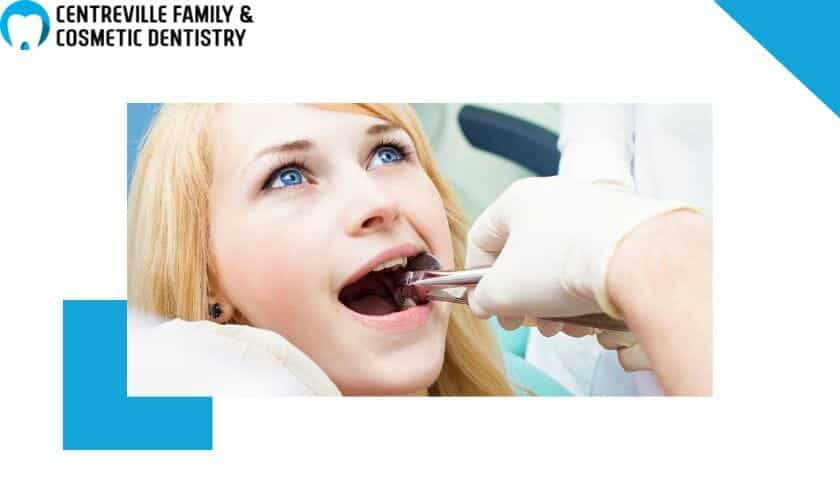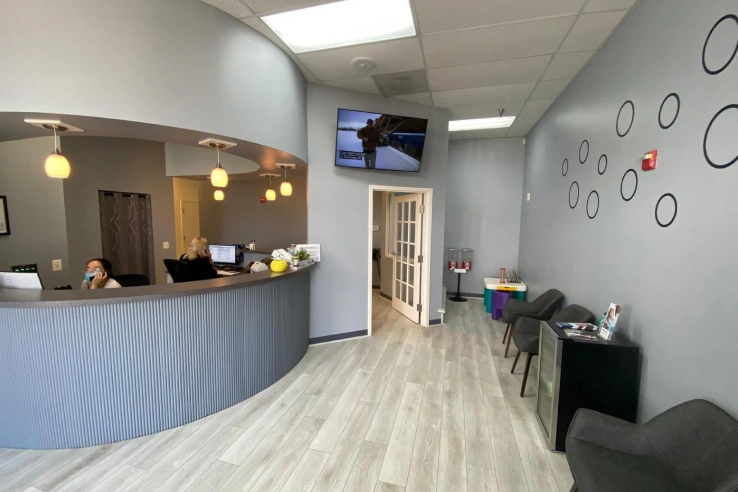We are not a registered Medicare/Medicaid Provider
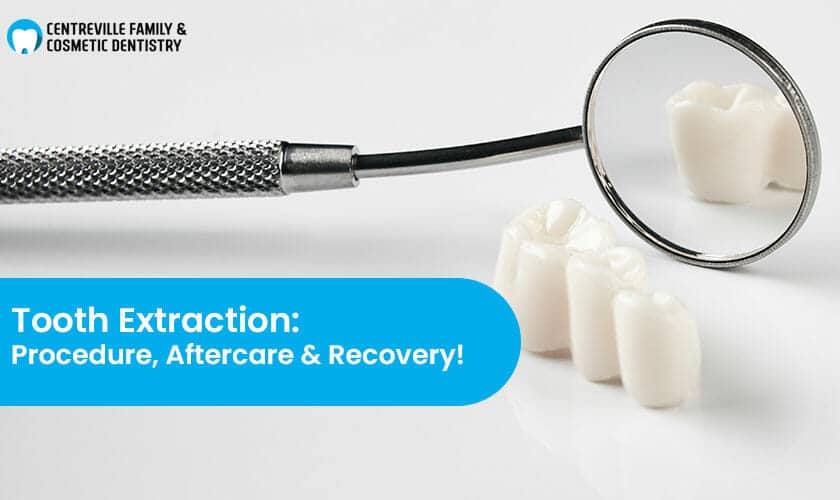
In the tooth extraction process dentist will extract a tooth for various reasons, including extensive damage to the tooth or rotting. Extraction of a tooth, one of the most common dental treatments, can rid the mouth of bacteria and enhance the patient’s oral health.
What is a tooth extraction?
The total extraction of one or more teeth from the mouth means “tooth extraction.” Dental surgeons are the most qualified medical professionals to carry out procedures. Milk teeth, which replace permanent teeth, can be extracted from a child’s mouth even without the assistance of a dentist, as they become loose as a natural part of the maturation process.
What happens before a tooth extraction?
Your dentist will evaluate the problematic tooth and gums surrounding it. In addition, your dentist will take dental X-rays to assess the severity of damage and bone levels. You must discuss drugs, vitamins, and supplements that you are currently taking with your dentist. After collecting the necessary data, we will sit down with you and discuss the treatment and sedative alternatives.
Sedation options in dentistry
Several medical professionals administer sedation during dental procedures like tooth extractions. For those who experience dental anxiety or who just want to feel more at ease during their treatment, sedation is a fantastic alternative. Below is given the following sedation options in Dentistry.
1. Nitrogen dioxide
Nitrous oxide, also called “laughing gas,” is a gas you breathe through a mask or nosepiece. It’s an attractive choice for those who require only mild sedation. In the case of nitrous oxide, patients can travel alone to and from their appointments.
2. Oral Conscious Sedation
This kind of sedation is administered orally, typically as pills, about an hour before your dental appointment. Diazepam, midazolam, triazolam, and lorazepam are common drugs used for this. It is possible to use intravenous sedation or nitrous oxide in addition to or instead of oral conscious sedation. Your unique demands are taken into account when adjusting the dosage. If oral conscious sedation is your choice, the patient will require transportation from a friend or relative to and from the appointment.
3. Intravenous (IV) sedation
Dentists advise Intravenous Sedation for those enduring protracted operations or those with severe dental anxiety. The deepest level of sedation attainable in a dentist’s clinic is IV sedation. An IV line administers sedatives and painkillers straight to your bloodstream, including midazolam and meperidine.
In some cases, in a hospital setting, general anesthesia may be advised by your dental professional. Usually, complicated situations involving reconstructive jaw surgery or facial reconstruction are saved for this approach.
Conclusion
Hearing told you need to have a tooth extracted is never enjoyable. Tooth extraction restores the aesthetics, functionality, and general oral health with dental restorations, including partial dentures, dental bridges, or dental implants. However, there are situations when a tooth extraction is the most effective approach to get rid of an infection and get your smile and life back on track. If your dentist advises extraction, talk to them about replacement possibilities. Visit your nearby dentist in Centreville to get the best treatment for tooth extraction.
